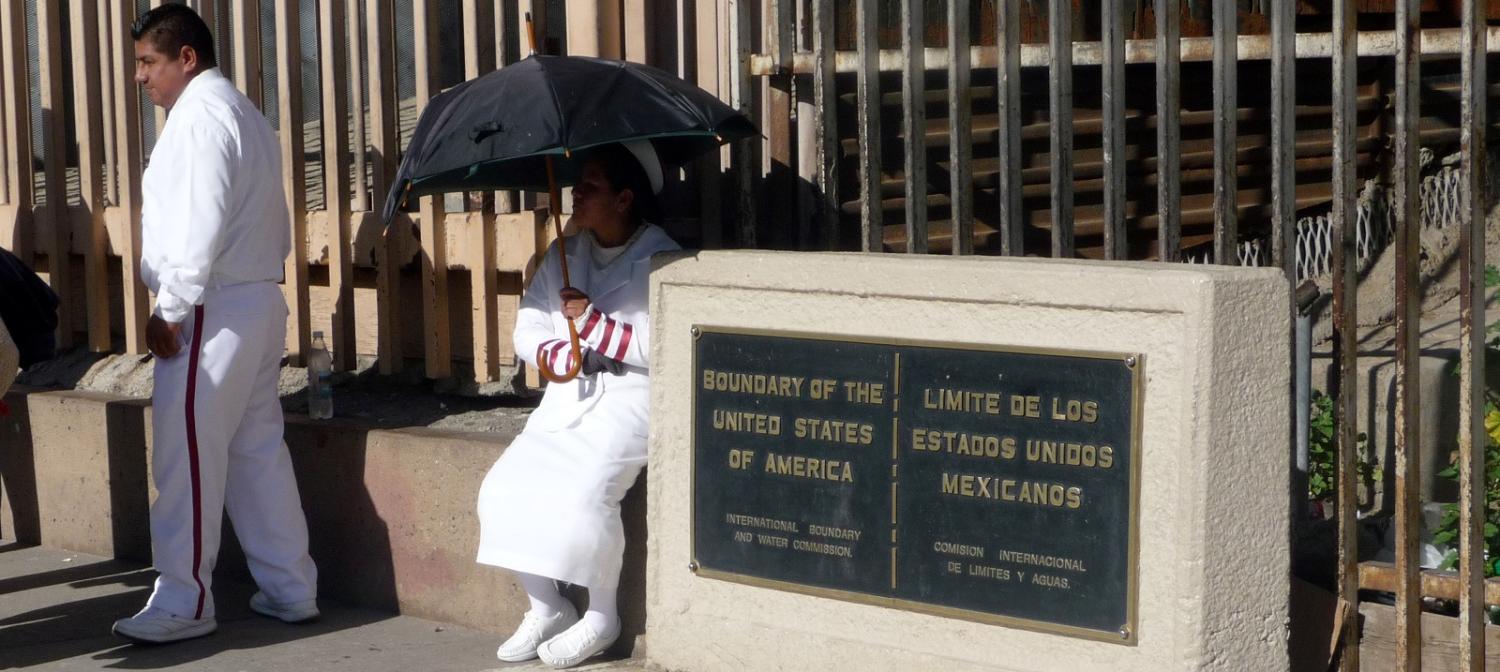Poor Mexico, so far from God and so close to the United States.
- Porfirio Díaz, President of Mexico, 1876-1911
With Friday's US presidential inauguration looming, the left-of-centre Mexican news magazine Proceso features a special report by prominent liberal Mexican commentators on what the Trump administration would mean for Mexico. The report was titled La guerra que viene (the upcoming war) and was accompanied by a stern-faced image of Trump.
While dramatic, the magazine's language and imagery captured the concern which the Mexican government and significant numbers of Mexicans have about the incoming US administration and Trump’s plans. These include: building a wall along Mexico’s northern border; deporting undocumented immigrants; and renegotiating the North American Free Trade Agreement. Although the three issues have been the subject of much discussion, the proposed wall has without a doubt aroused the most anger in Mexico. It is seen as anti-Mexican and a sign of difficult times ahead in the bilateral relationship.
During the US electoral campaign, Mexican President Enrique Peña Nieto adopted a conciliatory stance towards Trump. The Mexican government has, however, recently strengthened its discourse on the wall. In an address to Mexican Ambassadors and Consuls on 9 January, President Peña Nieto said that Mexico would not pay for the construction of the wall and that all issues which defined the bilateral relationship were on the table, including security, migration and trade. He said:
At no time will we accept anything against our dignity as a country, or our dignity as Mexicans.
Basic principles such as our sovereignty, the national interest and the protection of our compatriots are not negotiable.
Peña Nieto emphasised that the US must make a commitment to work in a responsible way to stop the illegal trafficking of arms into Mexico, as well as to curb illegal money received by criminal organisations in Mexico. He added that any repatriation of undocumented persons must continue in an orderly and coordinated manner, guaranteeing the humane treatment and respect for the rights of Mexican migrants. The president also committed to increase Mexican investment in infrastructure and technology to make Mexico’s borders safer, modern and efficient.
This was in contrast to Peña Nieto’s comments during Trump’s August 2016 visit to Mexico when, in a bid to woo the US presidential candidate, he said that there had been misinterpretations or statements by Trump that had 'unfortunately hurt and affected Mexicans'. While not explicit, he was almost certainly referring to Trump’s much publicised remarks about Mexico when he announced his candidacy in June 2015:
When Mexico sends its people, they're not sending their best. ... They're sending people that have lots of problems, and they're bringing those problems with us. They're bringing drugs. They're bringing crime. They're rapists. And some, I assume, are good people.
At the time, Peña Nieto said that, while ‘the people of Mexico had felt offended by the remarks’, he was genuinely interested in building the bilateral relationship. The Mexican president was widely criticised for inviting Trump to Mexico and for not standing-up for Mexico’s sovereignty.
Recent public debate in Mexico on the wall has also focussed on trends in Mexican migration to the US. Commentators point to a 2015 study by the Washington-based Pew Research Center which showed that overall migration flows between the US and Mexico had decreased over the period 2009-2014, and that the net flow of migrants from Mexico to the US was negative over the same period. The Pew Research Center study also showed that that, after a peak of 6.9 million undocumented Mexican immigrants to the US in 2007, this number had fallen to 5.6 million in 2014.
Mexican commentators also note that an estimated 40% of Mexican illegal immigrants in the US arrive legally and then become illegal as a result of over-staying their visas. The wall would do nothing to counter this flow. Still other commentators point to the efforts that the Mexican government has made to stem illegal flows into Mexico via its southern border and that many of the illegal immigrants arriving in the US via Mexico do not originate from Mexico, but from elsewhere in Latin America.
Mexicans are also concerned about the economic impact of the wall, including the prospect of increased tariffs on Mexican exports to the US and taxes on remittances by Mexicans working in the US, which have been flagged as potential mechanisms to cover the cost of the wall and to make Mexico pay.
At a time when the Mexican government is plagued by allegations of corruption, economic mismanagement and public anger and protests over a recent 20% hike in the price of gasoline, the wall represents a major irritant in the bilateral relationship and a significant test of the leadership of the Peña Nieto administration.
Photo courtesy of Flickr user Marc van der Chijs
